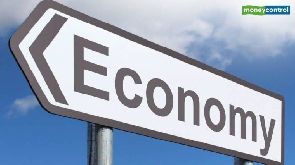- Home - News
- TWI News | TV
- Polls
- Year In Review
- News Archive
- Crime & Punishment
- Politics
- Regional
- Editorial
- Health
- Ghanaians Abroad
- Tabloid
- Africa
- Religion
- Election 2020
- Coronavirus
- News Videos | TV
- Photo Archives
- News Headlines
- Press Release
General News of Wednesday, 2 October 2013
Source: XYZ
TI’s 40% bribery claim in education bogus - Gov't
Deputy Education Minister, Samuel Okudzeto Ablakwa, has described as “bizarre” a report by Transparency International, which claims 40 per cent of respondents in a survey, said there is endemic corruption and bribery in Ghana’s education sector.
Mr. Ablakwa questioned the methodology used by Transparency International and accused the group of transposing findings of other countries onto Ghana.
He stressed: “A very bizarre report; so so bizarre. I have never seen any bizarre report like this. You don’t know what the scientific basis is and as a public servant in the education ministry, there’s no way that we will give credence to this report because of the havoc that it can cause to our image and to the product of our educational system”.
Mr. Ablakwa said: “Government is rejecting this report vehemently; we are very much opposed to the report; the methodology used is suspect - very blanket statements have been made - corruption has not been defined; it remains a nebulous and amorphous concept”.
According to him, “if you look at the report in detail, you’d notice that Ghana just featured on a graph where we are told that 40% of Ghanaians say that they have paid bribes in education, that’s all. We are not told at what level and for what services and we are told it’s a global report yet they pick on only 25 countries in that graph”.
“…This is a solid educational system that has produced a United Nations Secretary General. If we accept this report, what it will do to us is that very soon, international organisations will not be considering Ghanaians for employment because our education is full of corruption and is suspect; very soon, international or foreign universities will not be admitting our students for further studies because our education is full of corruption,” he observed.
The Global Corruption Report (GCR) 2013 said “a 2010 survey of 8,500 parents and teachers in seven African countries, showed that 40 per cent of parents pay illegal fees for education”.
“Ghana is not an exception. For example, the GCR 2013 reports that 40% of Ghanaians surveyed in the Global Corruption Barometer recently had to pay a bribe”.
The GCR 2013 also showed that in all cases, “corruption in education acts as a dangerous barrier to high-quality learning and social and economic development. It jeopardises the academic benefits of universities and may even lead to the reputational collapse of a country’s entire higher education system”. “Also, on a scoring of perception of corruption of sectors, the education sector was scored 4 out of a maximum score of 5, being most corrupt,” it noted.
The Global Corruption Report also cited many examples of bribery in university admissions and administration.
The anti-corruption group said: “Corruption in education is particularly burdensome for the poor, who, according to the 2010/2011 Global Corruption Barometer, are twice as likely to be asked to pay bribes for basic services as wealthier people”.
It said: “The rate of teacher absenteeism was comparatively high as 24% of teachers were reported missing classes, attributable to inadequate formal supervision and disciplinary action”.
It recommends that: “The social role and value of the school and the teacher must be placed at the forefront of education policy and anti-corruption efforts”.
“Teachers are often the first targets of corruption allegations, but this is often the cause of corruption at the higher level and the nonpayment of salaries or simple undervaluation of teachers,” it noted.
According to the group, “National policy-makers should understand the teacher as a role model and the school as a microcosm of society, and train teachers to teach by example”.
It stressed that: “Corruption in education should be understood as an obstacle to realising the human right to education. Efforts to tackle corruption are set by the tone at the top. Honest leaders can be a powerful force in reducing corruption. 2. Ministries of education need to be the first to pursue corruption as an obstacle to high-quality education and to national development with a declaration of a zero-tolerance approach to corruption being an essential element in strengthening access to and the quality of education.











